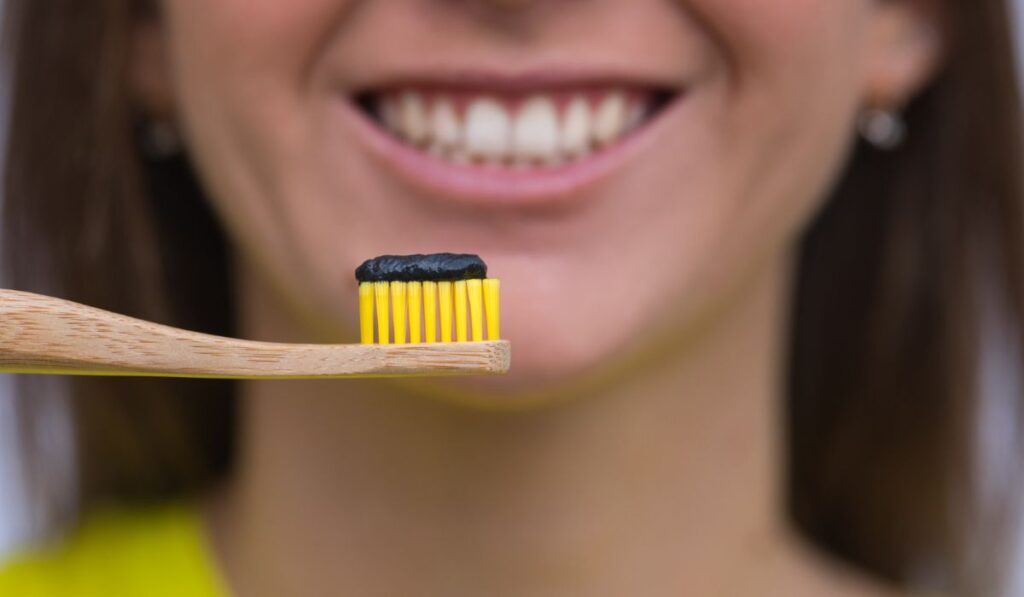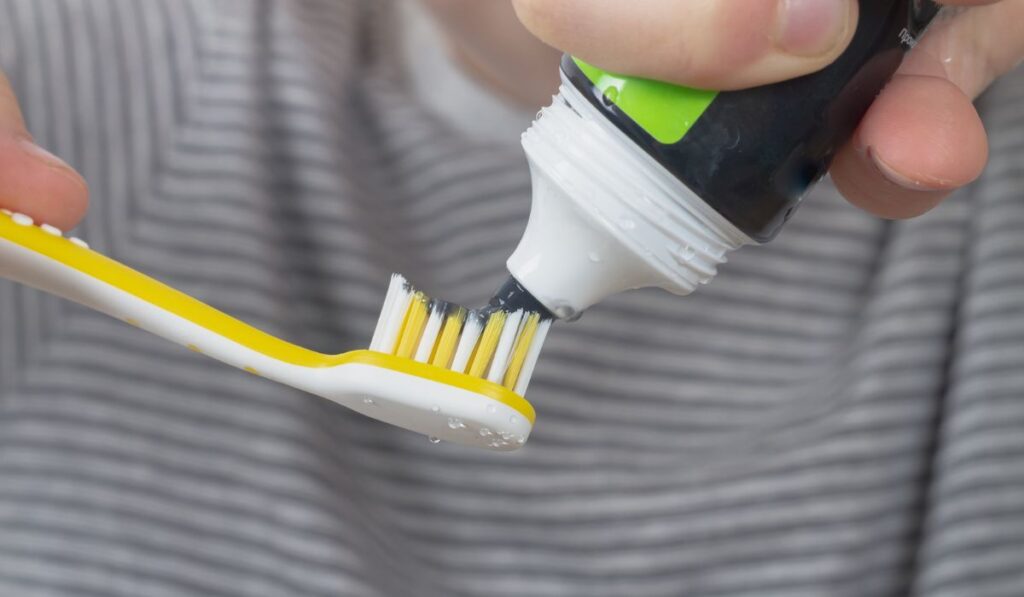Charcoal toothpaste has become quite the trend in recent years, with many celebrities promoting it on Instagram and praising it for what they consider to be magical whitening abilities. Regardless of all the hype, research has revealed a handful of charcoal toothpaste’s shortcomings, including some important safety concerns.
Charcoal toothpaste is dangerous to dental health as it wears down the enamel, gradually making teeth more sensitive and giving them a yellowish appearance. Moreover, ingesting too much charcoal toothpaste can lead to uncomfortable side effects such as nausea, vomiting, and diarrhea.
Now that we know some of the risks we take when using charcoal toothpaste, let’s dive deeper into the details and take a closer look at whether it’s safe to use charcoal toothpaste at all.
Is Using Charcoal Toothpaste Safe?

Technically, activated charcoal is non-toxic, making it safe in some ways. However, it’s not entirely safe for our dental health. Charcoal toothpaste (on Amazon) is abrasive, and using it daily eventually wears down the enamel of your teeth, exposing dentin and resulting in increased tooth sensitivity.
Charcoal toothpaste can stain your pearly whites if the charcoal particles build up in the tiny cracks, or even make existing stains worse. These charcoal particles can also cause irritation if they accumulate on your gum line, as we’ve covered in a separate article.
Additionally, most charcoal toothpaste brands lack fluoride, which is crucial for strengthening teeth and preventing cavities, tooth decay, and gum diseases. Charcoal toothpaste also leaves hideous gray-black outlines around dental restorations like crowns, white fillings, veneers, and bridges.
What Happens If I Swallow Charcoal Toothpaste?
While we shouldn’t swallow toothpaste, sometimes it happens accidentally. You should be fine if you unintentionally ingest a small amount of charcoal toothpaste.
Consuming a large amount of charcoal toothpaste, on the other hand, is dangerous to your health and could even prevent the absorption of medications.
Some medications affected by charcoal include acetaminophen, digoxin, diabetes medications, and birth control. Toxicologists have also stated that severe side effects could occur when charcoal interacts with laxatives. You could experience low blood pressure, electrolyte imbalances, and dehydration, leading to kidney damage.
What Are the Side Effects of Charcoal Toothpaste?
Charcoal toothpaste might not be the healthiest way to brighten your smile. Aside from counteracting absorption of medication, it has other possible side effects, including:
- Nausea
- Vomiting
- Diarrhea
- Black tongue
- Gastrointestinal damage
Can I Still Use Charcoal Toothpaste?
If you still have your heart set on using charcoal toothpaste despite all its cons, here are a few helpful tips to support good dental health while using it:
Consult Your Dentist Before Use
Before you start using activated charcoal toothpaste, consider scheduling an appointment with your dentist to determine if it’s the correct choice.
Inform the dentist that you wish to use charcoal toothpaste. The dentist should then evaluate your oral health and let you know if the charcoal toothpaste is a good fit for you based on your teeth and gums.
Use the Charcoal Toothpaste Carefully
Overusing activated charcoal toothpaste can lead to erosion of the enamel. So, it’s important to use the charcoal toothpaste cautiously to avoid wearing down your enamel in the long run.
Since charcoal toothpaste is abrasive, you can use your fingers to rub it on your teeth rather than applying it with a toothbrush.
Bear in mind that neither the FDA nor the American Dental Association (ADA) approves activated charcoal products. Furthermore, they aren’t appropriate for use by children and pregnant or breastfeeding mothers.
Pick an Appropriate Charcoal Toothpaste Brand
The ADA recommends going for toothpastes with a Relative Dentin Abrasivity (RDA) level of about 250 or less. Therefore, opt for charcoal toothpastes that conform to that guideline, such as The Natural Dentist’s Charcoal Toothpaste (on Amazon).
If you can’t find a toothpaste with a low RDA level, use the available charcoal toothpaste for a short period. Also, try alternating it with fluoride toothpaste.
Some charcoal toothpaste brands also contain sorbitol as one of the main ingredients. Sorbitol is an artificial sweetener that could cause allergic reactions in some people. It also causes a laxative effect when swallowed in large amounts.
Use Charcoal Toothpaste Appropriately

Put a small amount of charcoal toothpaste on your wet toothbrush bristles. Brush in a circular motion for around 2-3 minutes. If your teeth are sensitive, try using a soft-bristled toothbrush (on Amazon).
You shouldn’t replace your regular toothpaste with charcoal toothpaste. Instead, use them both as they have distinct functions. For instance, charcoal toothpaste helps remove superficial stains but doesn’t freshen your breath like regular toothpaste. For more information on how often you should brush with charcoal toothpaste, check out our other article on this topic.
Brush your teeth with the regular toothpaste after using the activated toothpaste. This helps remove the small charcoal toothpaste particles, which sometimes stick to cracks, crevices, and gum lines. Thoroughly rinsing and using your normal toothpaste afterward ensures you eliminate the charcoal residue.
Brushing with charcoal toothpaste daily for three consecutive days can yield a desired whitening effect. Using it five days in a row could suffice for more deeply stained teeth.


